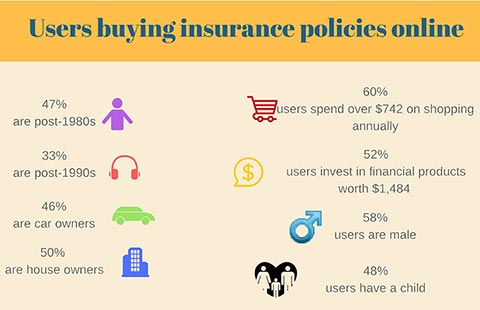Ford fortunes fade while crosstown rival GM posts record profit
 |
|
A visitor at the Ford booth at the 2016 Mobile World Congress in Shanghai on June 29. [Photo by Li Fusheng/China Daily] |
Ford Motor Co's profits are slumping while General Motors Co is posting record earnings. To understand why, look no further than big sport utility vehicles that have come roaring back as US gasoline prices plunged.
In the battle of the behemoths, GM is dominating. It controls 49 percent of the US market for large and luxury SUVs, while Ford has just 13 percent of that lucrative business, according to Morgan Stanley analyst Adam Jonas.
In a product category where profit margins swell to 20 percent or more, that can give GM an annual $2 billion pretax profit edge over Ford, he said.
That helps explain why Ford's third-quarter net income fell by more than half to $957 million, while GM booked a record $2.8 billion.
There were other factors affecting Ford, such as spending big to introduce its aluminum-bodied Super Duty pickup and getting hit with a $600 million tab for a door latch recall. But Ford's bet a few years back that $100-a-barrel oil would make dinosaurs of big SUVs is not working out.
Thinking small
Back when gas prices were soaring to near $4 a gallon, Ford went all in on a strategy to bolster its offerings in small cars, small engines and fuel-efficient, aluminum-bodied trucks.
At the time, that was what consumers were craving. Now, with cheap gas driving buyers back to SUVs, Jonas contends Ford has the wrong lineup.
"I vehemently disagree with that," Bob Shanks, Ford's chief financial officer, said in an interview. "We've set ourselves up well for the next decade. And what that forgets is that we still have these regulatory requirements, whether people like the fact that gas prices are high or are low."
Shanks acknowledges GM "clearly has an advantage" in big SUVs, but said Ford will begin to get a "better and fairer share of the revenue in that segment" next year when it introduces new, aluminum-bodied versions of the Ford Expedition and Lincoln Navigator.
"They'll be straight state-of-the art, gorgeous, beautiful with great interiors," Shanks said.
Production cuts
For now, Ford is slashing production of slow sellers such as the Fusion sedan and Focus compact. After cutting production 12 percent in the third quarter, Ford is curtailing factory output by another 12.5 percent in the year's last three months to reduce inventories of unsold cars.
That's a direct hit to the bottom line because the company books revenue when a car or truck leaves the factory, not when it is sold in the showroom.
Chief Executive Officer Mark Fields has said profit would fall this year and next as the automaker spends big to transform itself into a mobility company that can take on interlopers such as Uber and Google.
"I would call our approach realism, not optimism, not pessimism, it's realism," Fields told analysts on Thursday on a conference call. "We do see a marketplace, from a cycle standpoint, it's matured. We're being very proactive and taking very prudent actions and realistic actions for our company."
Investors have taken a pessimistic view on Ford, trading the shares down 16 percent this year through Wednesday.
Ford's third-quarter profit decline was narrower than analysts estimated because some marketing and operating costs the automaker expected in the period won't show up until the fourth quarter. Profit excluding some items was 26 cents a share, compared with the 20-cent average projection of analysts surveyed by Bloomberg.
The new Super Duty pickup also commanded prices averaging more than $62,000 a vehicle, offsetting a decline in F-150 prices, as the automaker sold models not as lavishly outfitted with options as it did a year ago. There were also problems in the Super Duty's manufacturing rollout.
"We have had some supplier issues," Shanks said, without specifying the problems. "There's never a perfect launch. These are very complicated vehicles with thousands of parts coming together."
Ford expects operating cash flow to turn positive again this quarter after posting a rare $2 billion negative cash flow in the third quarter, he said.
GM, facing the same market conditions and investing in autonomy like Ford, said it expects earnings this year to hit the high end of expectations.
Autonomous optimism
Ford may also be going too big with its $4.5 billion investment in electrified vehicles and overestimating how quickly the market will shift to self-driving vehicles, Jonas wrote in an Oct 13 note. The company has said it will be selling 100,000 robot taxis a year by 2021.
"For the foreseeable future, we're going to be in investment mode" on mobility projects, Fields said. "Clearly the investments we're making in emerging opportunities, whether it's electrification or autonomy or mobility, will impact our earnings. Further out, those businesses will start to contribute to the company's bottom line."
Investor Bernie McGinn has grown tired of waiting for that pay off and he has begun selling off his 400,000 shares in Ford.
The president of McGinn Investment Management in Alexandria, Virginia, grew increasingly frustrated as he watched the value of his investment fall more than 30 percent since Alan Mulally retired as CEO on July 1, 2014.
"Alan Mulally was a once-in-a-generation executive," McGinn said. "Becoming a mobility company is going to take a huge investment in dollars and in focus. Ford came back because they focused on coming back and that's my fear."
BLOOMBERG

















